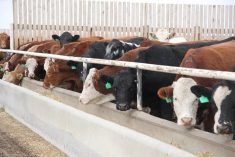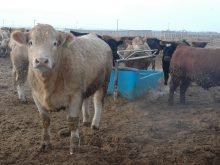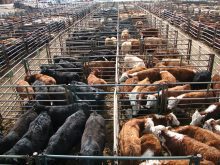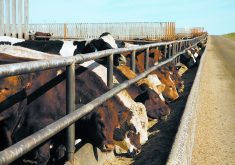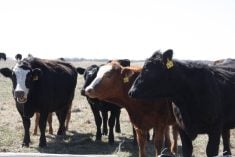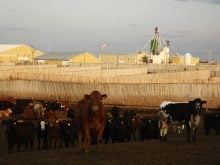This cattle market information is selected from the weekly report from Canfax, a division of the Canadian Cattlemen’s Association. More market information, analysis and statistics are available by becoming a Canfax subscriber by calling 403-275-5110 or at www.canfax.ca.
Fed cattle post records
Fed cattle hit new record highs and have been higher than $120 per hundredweight for seven consecutive weeks.
Fed steers averaged $126.47, up $1.81, and heifers averaged $126.42, up $2.34. Rallying cattle futures and the softer Canadian dollar firmed asking prices.
Flat bids with no grading discounts encouraged producers to market short fed, green yearlings.
Read Also
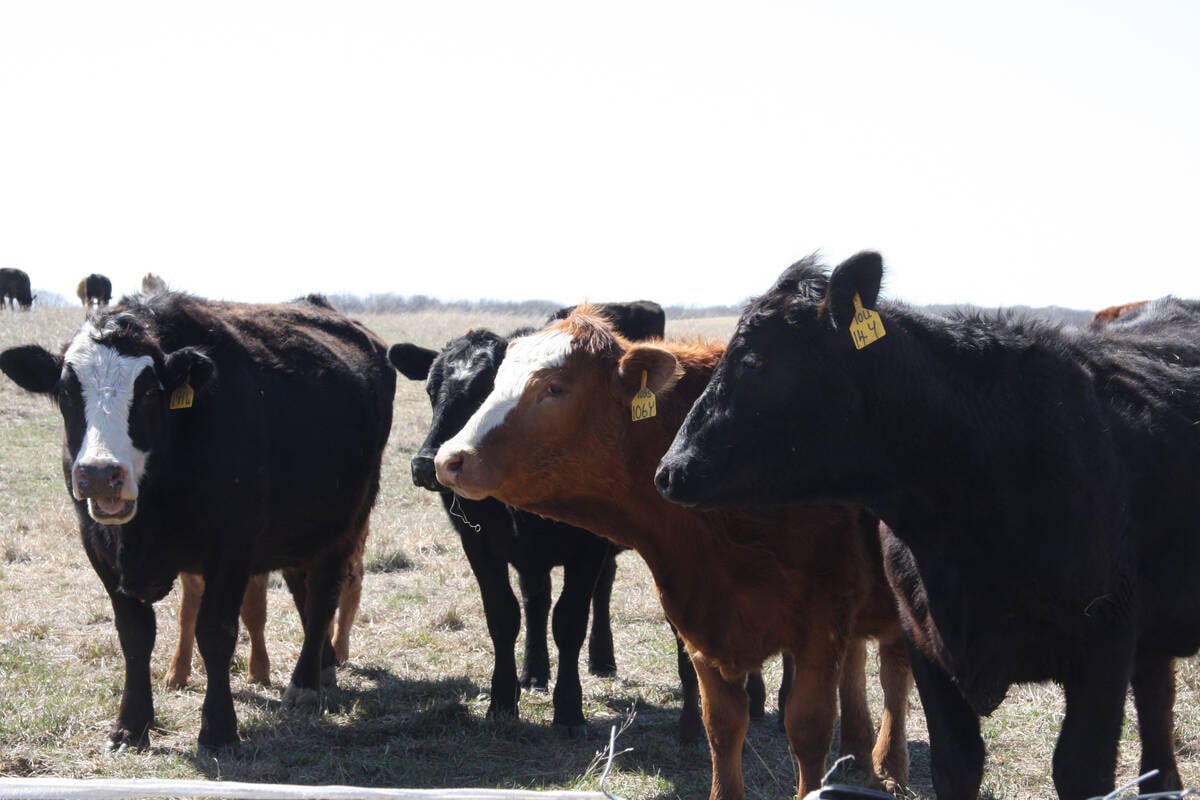
Canfax cattle market report – October 16, 2025
The Canfax cattle market report for October 16, 2025. Fed & feeder cattle prices, butcher cow trends, and cutout market insights.
Procurement and slaughter strategies from the two big western Canadian packers have differed over the past couple of weeks. One has relied on its contracted cattle and ramped up non-fed production, while the other has been aggressive on the fed cash market, which has helped maintain the A grade slaughter.
Fed cattle bought on the cash market are being lifted in about a week.
Cash supplies last week were generally cleaned up, and in some instances lists were oversold.
Cash-to-futures basis levels weakened $1.95 to close the week at -$14.65. That is wider than the five year average of -$10.34.
Market-ready supplies for December should remain manageable.
This should be supportive near term because strong feeder prices in August and September saw yearlings placed at lighter weights than normal.
Retailers are covering beef needs for Christmas.
Cows edge higher
D1, D2 cows ranged $65-$75 per cwt. to average $69.79, up 50 cents on tighter supply. D3s ranged $59-$70 to average $63.42, up $1.
Weekly rail prices were steady at $134-$139 delivered.
Butcher bulls rose to average $80.61 per cwt.
Weekly western Canadian non-fed slaughter to Nov. 23 rose four percent to 10,568 head.
Weekly non-fed exports to Nov. 16 rose 12 percent to 10,597 head, the largest weekly volume this year.
Fall non-fed slaughter volumes are expected to seasonally tighten.
Feeder prices firm
Auction volumes fell and average feeder prices rose. Calves 300-400 pounds were mixed with steers $1.25 per cwt. higher while heifers fell.
Calves 400-600 lb. were generally steady to 75 cents lower, while 600-800 lb. were steady to $1 higher.
Feeders heavier than 800 lb. rose more than $1. All feeder steers heavier than 600 lb. were more than $12 higher than the same week last year.
Alberta auction volume fell four percent to 64,727 head, which was three percent more than the same week last year.
Weekly feeder exports to Nov. 16 were about steady at 10,196 head. So far this year exports are 107 percent larger than last year at 262,912 head.
Auction volumes typically fall through December, and with only three full trading weeks remaining before Christmas, year-end buying interest is expected to intensify.
Beef stronger
U.S. boxed beef prices Nov. 27 were up from the previous week, with Choice up $3.97 at $202.55 per cwt. and Select up $3.77 to $198.58.
Reduced production in the U.S. Thanksgiving week and procurements for Christmas holidays are expected to support beef prices.
Weekly Canadian cut-out values to Nov. 22 rose for the third consecutive week with AAA up $6.85 per cwt. at $206.45 and AA up $7.44 at $198.68.
Cutouts are now $18-$19 per cwt. higher than last year.
Montreal wholesale price for delivery this week was steady at $225-$226 per cwt.




